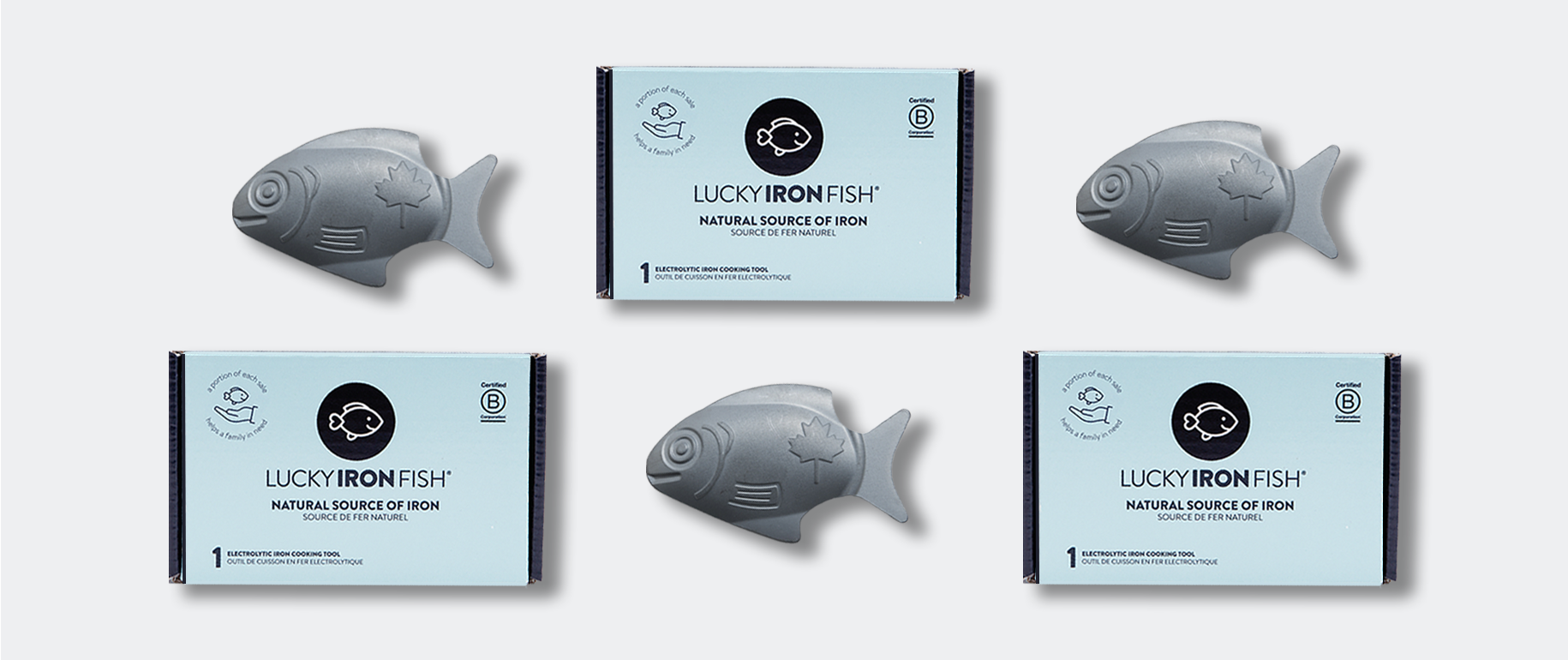With record-high humanitarian needs around the world, for this year’s World Humanitarian Day, Lucky Iron Fish Enterprise (LIFe) is highlighting the impacts of micronutrient deficiencies in humanitarian and/or fragile contexts. Iron deficiency anemia (IDA) is the most common micronutrient deficiency in the world and it can have devastating long-term and generational consequences. Hunger and malnutrition are rampant amongst refugees and displaced populations and many in those groups suffer from multiple forms of malnutrition, including iron deficiency. Micronutrient deficiencies are a common, but often overlooked consequence of a humanitarian crisis, emergency, or disaster. In these crisis contexts, people who live at the intersection of one or more vulnerability, such as gender, poverty, or food insecurity are at the greatest risk for experiencing micronutrient deficiencies. As a result, one of the largest nutritional concerns during an emergency is micronutrient deficiencies. Yet, despite the rising scale and scope of emergencies, nutrition remains largely underfunded.
 IDA is a symptom of hidden hunger, which is a chronic lack of necessary vitamins and minerals in a person’s diet. IDA impairs cognitive function, which lowers learning and wage potential. It weakens the immune system, which
increases the risk of infections and poor health. Maternal anemia is associated with poor pregnancy outcomes such as miscarriage, stillbirths, prematurity, and low birth weight which means that
poor nutrition is passed down through generations. Anemia can cause fatigue and lead to lower productivity.For every $1 US dollar invested in interventions aimed at reducing anemia in women (iron and folic acid supplementation for non-pregnant and pregnant women, intermittent preventive treatment of malaria in pregnancy and fortification of cereals with iron)
produces a $12 economic return.
IDA is a symptom of hidden hunger, which is a chronic lack of necessary vitamins and minerals in a person’s diet. IDA impairs cognitive function, which lowers learning and wage potential. It weakens the immune system, which
increases the risk of infections and poor health. Maternal anemia is associated with poor pregnancy outcomes such as miscarriage, stillbirths, prematurity, and low birth weight which means that
poor nutrition is passed down through generations. Anemia can cause fatigue and lead to lower productivity.For every $1 US dollar invested in interventions aimed at reducing anemia in women (iron and folic acid supplementation for non-pregnant and pregnant women, intermittent preventive treatment of malaria in pregnancy and fortification of cereals with iron)
produces a $12 economic return.
As rates of malnutrition, including micronutrient deficiencies, increase substantially during a crisis, the failure to address IDA during an emergency consigns millions of people, particularly the most vulnerable such as women and girls, to poor health and economic setbacks. With the concurrence of conflict and climate-related natural disasters, the problem of food insecurity and malnourishment, and therefore IDA, could spiral into a protracted crisis. Rising temperatures and extreme weather events are creating conditions that facilitate the spread of infectious diseases, some of which also cause anemia such as malaria. Climate change is also threatening food security due to altered food production, decreased crop yields, and rising food prices. We need to empower communities with tools and resources to strengthen their nutritional resiliency to withstand shocks and recover faster to reduce malnutrition, particularly IDA. Linear programming has demonstrated that food based strategies alone might not be sufficient to meet the dietary needs of people experiencing a crisis such as a disaster or conflict. Therefore, it is important that nutrition programming also consider fortification approaches to complement food based strategies.
At Lucky Iron Fish, we are committed to furthering the incredible work being done in the humanitarian space by partnering with organizations like CARE, GlobalMedic, and more who are committed to improving the lives of the most vulnerable communities worldwide. Lucky Iron Fish comes alongside its partners to support initiatives that address micronutrient deficiencies and malnourishment during and in the aftermath of a humanitarian crisis.











